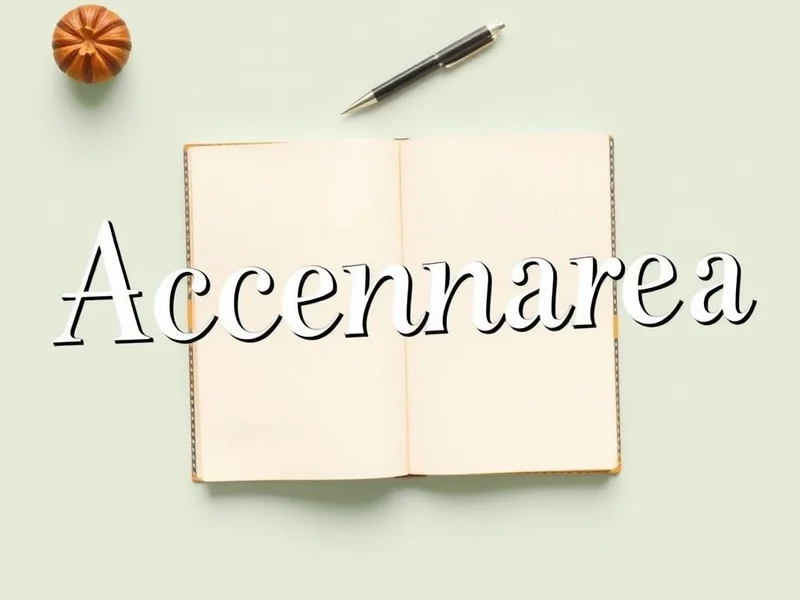How to Use "Accennare a": Meaning and Practical Examples for Italian
Learning Italian also means mastering those nuances that make your speaking natural and authentic. One of these is the phrasal verb "Accennare a". This expression may seem simple, but its correct use and various meanings often cause confusion among students. Have you ever wondered how to use it best, or what the difference is between an "accenno" and a complete statement? In this article, we will discover together the meaning of "Accennare a", its grammatical structure, practical examples, and common mistakes to avoid. Get ready to communicate in Italian with more confidence!

Table of Contents
- What Does “Accennare a” Mean?
- The Grammatical Structure: How Is It Used?
- Sentences and Examples with “Accennare a”
- Crucial Differences: Common Mistakes to Avoid
- Similar or Related Expressions
- Conclusion
What Does “Accennare a” Mean?
- Literal Meaning: To make a small movement or gesture, often with the head or hand, as a sign of greeting, agreement, or indication.
- Example: "Il professore ha accennato al banco per indicare dove sedermi."
- Figurative Meaning: To talk about something briefly, superficially, or indirectly, without going in-depth about the topic.
- Example: "Durante la riunione, ha solo accennato alla nuova proposta, senza dare dettagli."
The Grammatical Structure: How Is It Used?
The verb "accennare a" follows a rather linear structure.
[Subject] + accennare + a + [Noun / Pronoun / Infinitive]
The preposition "a" is fundamental and required. It indicates the indirect object or the direction of the action (whether physical or verbal). Often, "accennare a" is followed by a noun indicating the topic you briefly mention or the person you're signaling to. It can also be followed by an infinitive verb to indicate the implied action.
Sentences and Examples with “Accennare a”
Here are some practical examples to understand how to use "Accennare a" in different contexts. These will help you improve your practical Italian vocabulary.
📍 Family
Mamma: "Hai parlato con la zia del tuo viaggio?"
Figlio: "Sì, le ho accennato al fatto che partiremo presto, ma non le ho dato tutti i dettagli."
📍 Work
Collega 1: "Il capo sembrava soddisfatto del progetto, vero?"
Collega 2: "Ha accennato a un possibile bonus per il team, ma non si è sbilanciato."
📍 Everyday life
Amico 1: "Hai visto come mi ha salutato il postino?"
Amico 2: "Sì, ti ha accennato con la testa, era di fretta."
📍 News
Giornalista: "Il ministro ha solo accennato alla crisi economica durante il suo discorso."
Spettatore: "Infatti, non ha approfondito l'argomento."
Crucial Differences: Common Mistakes to Avoid
One of the most common mistakes concerns the use of the preposition and confusion with similar verbs.
Accennare a (verb) Vs. Cenno (noun)
- Accennare a: an action, a brief verbal or gestural expression. It requires the preposition "a" if followed by an object or action.
- Example: "Ho accennato a un nuovo problema." (I briefly mentioned a problem).
- Cenno: the gesture or the brief mention itself. It can be accompanied by verbs such as "fare un cenno", "ricevere un cenno".
- Example: "Mi ha fatto un cenno con la mano." (He/she made the gesture).
- Example: "Ho capito dal suo cenno che dovevo aspettare." (I understood from the brief indication).
- Accennare a: an action, a brief verbal or gestural expression. It requires the preposition "a" if followed by an object or action.
Accennare a Vs. Menzionare
- Accennare a: Means to refer to something very briefly, indirectly, or superficially. There is often an intention not to go in-depth.
- Example: "Ha accennato alla sua promozione, ma non ha voluto dire altro."
- Menzionare: Means to name something or someone. The act of naming is more direct and does not necessarily imply an intention to be superficial or to avoid the topic. It can be a brief action, but is more neutral regarding intention.
- Example: "Ha menzionato il suo nuovo progetto durante la riunione."
- For an in-depth analysis on the difference between "menzionare" and "accennare" (in a more general context of synonyms), you can consult linguistic resources such as the Cambridge Dictionary to understand the nuances of "menzionare".
- Accennare a: Means to refer to something very briefly, indirectly, or superficially. There is often an intention not to go in-depth.
Similar or Related Expressions
To enrich your practical Italian vocabulary, here are some expressions that may have a similar or connected meaning to "Accennare a".
| Similar Expression | Brief Meaning | Example |
|---|---|---|
| Fare un cenno | To make a quick gesture or small sign. | "Mi ha fatto un cenno con la mano." |
| Far capire | To suggest or imply something indirectly. | "Gli ha fatto capire che non era d'accordo." |
| Sfumare | To not get to the point, to be evasive. | "Il discorso ha sfumato sull'argomento." |
| Buttar lì | To say something casually, without importance. | "L'ha buttata lì, senza pensarci troppo." |
Conclusion
We have seen how "Accennare a" is a versatile phrasal verb in Italian, used both for quick gestures and for superficial discussions. The key is to keep in mind the preposition "a" and its sense of brevity or indirectness. Mastering expressions like this is key for natural speech and for communicating in Italian with greater fluency.
Now it's your turn! Try to use "Accennare a" in a sentence. Share an example in the comments below, or think about it while you’re speaking with a native speaker!